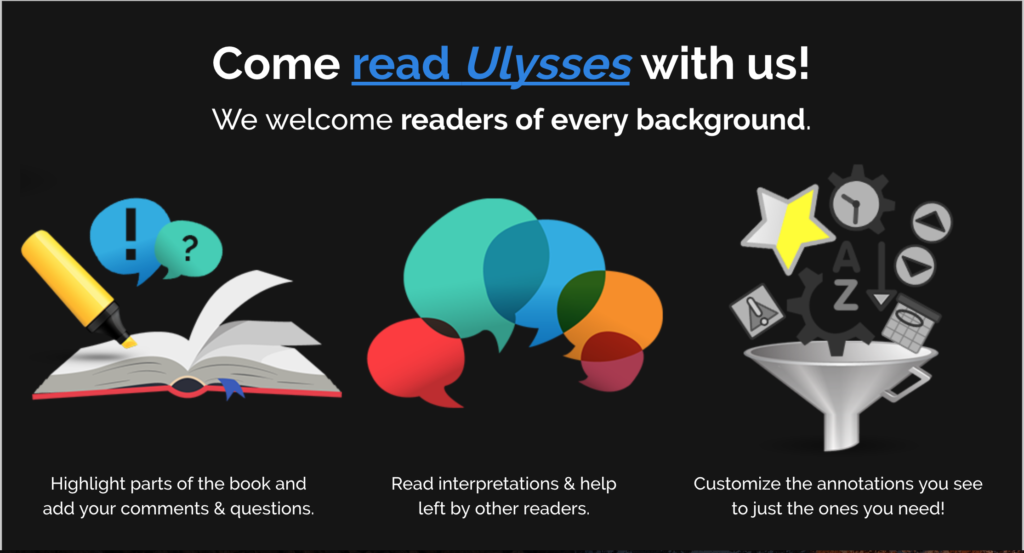Amanda Visconti (University of Maryland)
Infinite Ulysses
What if we build a digital edition and everyone shows up? Infinite Ulysses Quick Dissertation Video from LiteratureGeek on Vimeo.
Affiliation: English, University of Maryland; 2015
Dr. Visconti’s project description
Scholarly editors are integral to the continuum that keeps the stories of the past available to and understood by the present—but that public of readers beyond the academy whose interest keeps the humanities alive and relevant is just as important. What if we build a digital edition and invite everyone? What if millions of scholars, first-time readers, book clubs, teachers and their students show up and annotate a text with their “infinite” interpretations, questions, and contextualizations? My dissertation pursues this speculative experiment through the creation of the Infinite Ulysses digital edition; I’ve studied how to improve the design and functionality of a key artifact of the digital humanities—the digital edition—through this unlikely hypothetical.First, I designed, coded, and publicly released an actual digital edition of James Joyce’s Ulysses with various experimental interface features. Second, I conducted user testing and analyzed site analytic data with real readers and researchers. Third, I used the results of the experiment to build on knowledge from fields with a stake in digital social reading: literary studies, textual scholarship, information science, and visual design rhetoric. I’m using this speculative experiment to dream big about the public humanities, produce something practically useful, and capture data to support critical responses to the challenges of a more public digital humanities. Three research areas were explored through these methodologies:
- How can we design digital editions that are not just public, but invite and assist participation in the scholarly love for the nuances of a text’s materiality, history, and meaning? Are there ways to design for meaningful participation that don’t necessarily scaffold critical participation?
- How can we design participatory digital editions to handle an influx of readers and annotations? What might we learn about digital editions and their texts from the accompanying influx of site use data?
- Can we separate the values of textual scholarship from the physical manifestations of these values? How might this clarification help us imagine new types of digital edition that hold true to those values?
A whitepaper serves as a report on the dissertation’s process and products.
Direct Link to Dr. Visconti’s Project



